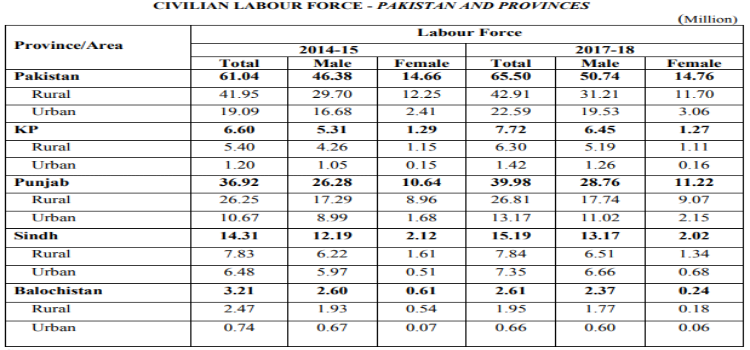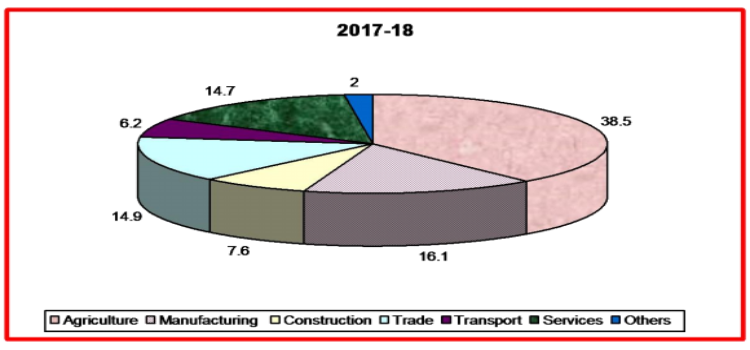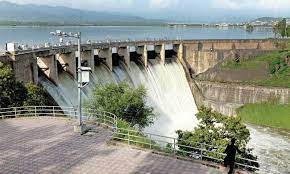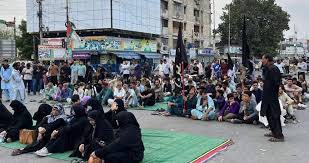‘Labour’ – a word initially of Latin term meaning ‘toil, exertion; hardship, pain, fatigue, work’ may seem trivial to most of us, but it, in fact, holds unparalleled significance for a country’s growth and development. A country’s labour force is essentailly the primary driving force behind its economic and social development and for this very reason, May 1st is marked as ‘Labour Day’ in Pakistan with the occasion being used to pay homage to millions of labourers in various fields across the country and on whose shoulders we all stand on.
Labour Day also known as ‘International Workers’ Day’ and ‘May Day’ originates to ‘Haymarket affair’ on May 4th 1886t Haymarket Square in Chicago when workers and labourers took to street in support of 8-hour work day. The protests turned deadly when a dynamite explosion resulted in death of at least 7 policemen and four civilians with dozens wounded. The Haymarket Affair is a significant milestone in the struggle of labours’ rights.
“No single event has influenced the history of labor in Illinois, the United States, and even the world, more than the Chicago Haymarket Affair”
Labor historian William J. Adelman
Labour Force In Pakistan And The Significance Of Labour Day
Pakistan has one of the world’s largest labour force with more than 72 million labourers. According to 2020 World Bank statistics, Pakistan has 72,335,052 labourers who are employed in various fields most notably agriculture, industries and construction sector. The country has innumerable labour unions, alliances and organizations that work towards the welfare of country’s labour force, most of which faces adverse socio-economic circumstances.

Majority of Pakistan’s labour force, are daily-wage workers who can vaguely be termed at those who are at the other end of socio-economic spectrum/class. Daily-wage workers are often subjected to work hours ranging from 12-16 hours, despite the fact that the world practices standardized 8-hour shifts.
According to PBS 2017-18 survey, most of Pakistan’s labour force is associated with agriculture sector with around 38.5% of 14.7%, construction – 7.6%, transport – 6.2% and 2% associated with various other sectors.

In Pakistan, Labour Day’s significance can be traced back to country’s founding father, most notable Quaid-e-Azam Muhammad Ali Jinnah who himself was a labour leader. He was elected as the President of All India Postal Staff Union in 1925 and was an ardent advocate and supporter of working class and labourers. So there’s that too, Labour Day in Pakistan is not merely a symbolic day but in fact is an occasion to commemorate the role played by labourers and working-class in Pakistan Movement and their continuing contribution to nation’s development and growth.
Amongst innumerable woes of Pakistan’s labour force, one is that of ‘minimum wage’. Currently, Pakistan’s minimum wage has been fixed at Rs 17,500 per month. However, in light of increasing inflation and other socio-economic dynamics, this figure needs to be raised to at least Rs 20,000 per month to keep up with the prevailing economic dynamics.
Labour Rights And Elimination Of Bonded Labour In Pakistan
The 1973 Constitution of Pakistan envisions comprehensive provisions aimed at safeguarding labour rights and preventing them from being exploited by their employers.
Bonded labour is another one of the most notorious issue faced by Pakistani labourers. Thousands of labouerers (mostly daily-wage workers) are subjected to some kind of bonded/forced labour. International Labour Organization (ILO) under its ‘Forced Labour Convention, 1930 (No. 29)’ defines bonded labour as;
“All work or service which is exacted from any person under the threat of a penalty and for which the person has not offered himself or herself voluntarily.”
In Pakistan, agriculture, construction, domestic service and most notable brick kiln sectors are affected by bonded labour with additional aspect of child labour as well.
It’s not that the country’s laws don’t provide necessary legal protection against bonded and child labour. Articles 11, 17, 18, 25 and 37(e) of the 1973 Constitution prohibits both bonded and child labour and promises all the basic rights to the labour force in the country. Other notable laws against bonded labour in Pakistan include;
- The Bonded Labour System (Abolition) Act, 1992
- The Bonded Labour System (Abolition) Rules,1995
- The Sindh Bonded Labour System (Abolition) Act, 2015
- The Khyber Pakhtunkhwa Bonded Labour System (Abolition) Act, 2015
- The Punjab Bonded Labour System (Abolition) Act, 1992 (Amendment, 2012)
- The Gilgit-Baltistan Bonded/Forced labour system (Abolition) Act, 2020
- The Punjab Prohibition of Child Labour at Brick Kilns Act, 2016
- Prevention of Trafficking in Persons Act, 2018
- The Pakistan Penal Code, 1860
However, the issue here is not of legal provisions and protection but of implementation of existing laws and regulations. So, the argument here arises is not that advocates for lack of essential legislation bur rather the mechanism by which the existing ones are executed.
One major change that needs to be made in this regard is ‘de-centralization’ of labour department/ministries i.e. apart from centralized resources and record of the country’s labour force at the federal and provincial level; local governments must also be empowered and backed with financial and human resources to ensure strict implementation of labour laws at the local level.
Provisioning Social Security And Welfare For Labour Force
Pakistan has made significant progress in ensuring the provision of social security and welfare for the labour class. Initiatives such as Benazir Income Support Programme (BISP), Ehsaas Programme, Sehat Sahulat Programme are surely a positive development towards social security and welfare; however, these programmes must be especially expanded so that they are beneficial for the country’s labour class exclusively.
Comprehensive Labour rights are not only the requirement of the modern era but more importantly are a key element of Islamic teachings as well, as the religion itself has exclusively stressed ‘fair dealings with the labourers.
Hazrat Abdullah ibn Umar (R.A) narrates that Prophet Muhammad (P.B.U.H) said;
“Pay the worker his wages before his sweat has dried.”
Sunan Ibn Mājah 2443
Furthermore, explicit laws and regulations must be enforced aimed at preventing the exploitation of labourers by the hands of their employers as daily-wage workers in Pakistan are often denied their dues and are also subjected to physical abuse as well.
Another Hadith quoted by Hazrat Abu Huraira (R.A) highlights the significance of not delaying a labour’s dues; Prophet Muhammad (P.B.U.H) said,
Allah said, ‘I will be an opponent to three types of people on the Day of Resurrection: 1. One who makes a covenant in My Name, but proves treacherous; 2. One who sells a free person and eats his price; and 3. One who employs a labourer and takes full work from him but does not pay him for his labour.”
Sahih Bukhari, Chapter No: 37, Haidth No: 472
So let this Labour Day be more than just a mere official occasion but instead, a key reminder of the hard work put in by our labourers who allow an uninterrupted supply chain and are key to all the resources and facilities enjoyed by country’s 200+ million population.



















































